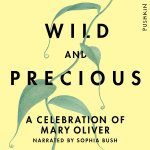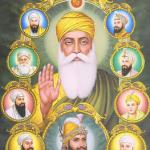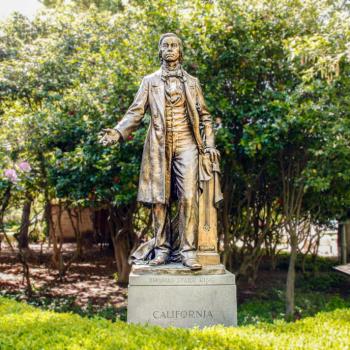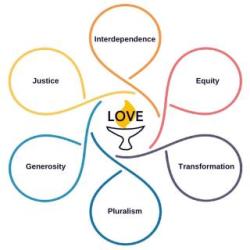The Unity of Religions
“The soul should always stand ajar, ready to welcome the ecstatic experience.”
Emily Dickinson
For anyone who says there are common currents to religions, say, like for me; there are challenges. Hard questions. Is there really a thread through them all, a tie that binds, some universal truth found in all religions? Just looking at the various creeds and the rites of the religions, it seems the answer would be no. No. And pretty resoundingly.
Within religious studies, the technical term for those who say “yes,” is perennialism. Perennialism is the belief that all religions share something in common. The first attempt to define this during the European Renaissance. The first person I can think of to assert this sense of a thread looks to be Marsillo Ficino, a fifteenth century Italian priest and an early Humanist philosopher.
Ficino saw a common thread running from the Corpus Hermeticum. The Corpus clearly showed at the very least a foreshadowing of Platonism and Christianity from centuries before they happened. As everyone at that time believed the Corpus to have been composed around the time of Moses, it looked pretty obvious.
The problem was that Ficino got his dates wrong. The Corpus was not, as was believed during the Renaissance, written in the thirteenth century before the common era. You know, when people believed Moses was alive and led the enslaved Jewish people out of Egypt to that promised land.
Instead, as it turns out, the Corpus was compiled somewhere between the first and third centuries of our common era. And it actually is a mash up of Platonism and Christianity, not a foreshadowing.
For me this demonstrates both the power of that sense all religions at that spiritual level are connected, together with the harsh fact that actual evidence of this is at best tenuous.
As the contemporary scholar Stephen Prothero titles his provocative book, as we look into the matter, it appears God is Not One. The good professor contends “the idea of religious unity is wishful thinking…” He in fact goes beyond condemning the unity of religions as fantasy. He asserts claiming all religions are one is a willful ignorance that makes the world a more dangerous place.
It isn’t so much a case of many paths up one mountain, but more likely many paths and many mountains. And. And, yet there is something in all this which calls for hedging from categorical assertions like the many religions are all different, period. Despite the tons of evidence about the differences, there are some threads that do look shared. There are even a couple of places where there are obvious commonalities.
One is the obvious ethical connection among the religions. It’s hard to have missed one of those lists of the Golden Rule and how that rule is articulated within pretty much all religions. They all believe in equity and treating your neighbor fairly. It may feature more strongly with one tradition than another, but it’s there. One can argue it is something deep within our humanity. And it is a birthing place for much of our spiritual sensibilities.
For me this is a bridge between the social cohesion aspect of religions (which I rail against every now and again) and the encounter with meaning, with purpose, with ultimacy. This sense of intimacy with others, this sense of a shared and mutual obligation leaps between the specifics of culture and our deepest intimations.
I also suspect this sense of fairness is probably the deeper connection driving much of today’s interfaith dialogue. Reminding us of our particular religion’s rule to not harm others. The idea is to feel a little closer, at least see each other’s humanity, and from that to be a bit less dangerous to each other. A good thing.
I strongly suspect this is rooted in two fundamental aspects of human psychology, which probably even has a biological an evolutionary basis. We seek harmony, balance, and see it manifesting as “fairness.” And at the very same time we have an urge to cheat, to gain an advantage for ourselves and ours. The Golden Rule address both aspects of who we are.
But something more? Something about ultimacy and meaning and that love which defies death? I find it interesting that Professor Prothero actually sees one thing that all the world’s religions, at least the ones he has studied, have in common. He observes “What the world’s religions share is not so much a finish line as a starting point. And where they begin is with this simple observation: something is wrong with the world.” In part I suspect this intuition of wrongness is probably tied up to some degree with that cheating part of who we are as humans.
The good professor goes on to list with what he acknowledges is an over simplistic schema of how religions see that “wrong” and their solutions. For Judaism the problem is “exile,” while the solution is “returning home,” for Christians the problem is “sin,” and the solution is “salvation,” for Islam the problem is “pride,” and the solution is “submission.” The list goes on. There is that fundamental noticing of some sort of problem in life. A lack, a wound, something missing.
And out of this sense of wrong, of lack, of lostness, of wound; sometimes something happens.
I believe that sense of fairness is an aspect of it. But at heart it’s a discovery of our intimacy. Which we might think of as the mother of our sense of the fair. We are all of us intimate with the world and each other.
And of course we also have that bit about cheating.
And the discomfort in how all things are unbalanced, slightly off.
And if we’re curious and maybe a bit lucky, we begin a journey.
Perhaps toward the secret heart of the unity of the religions…














